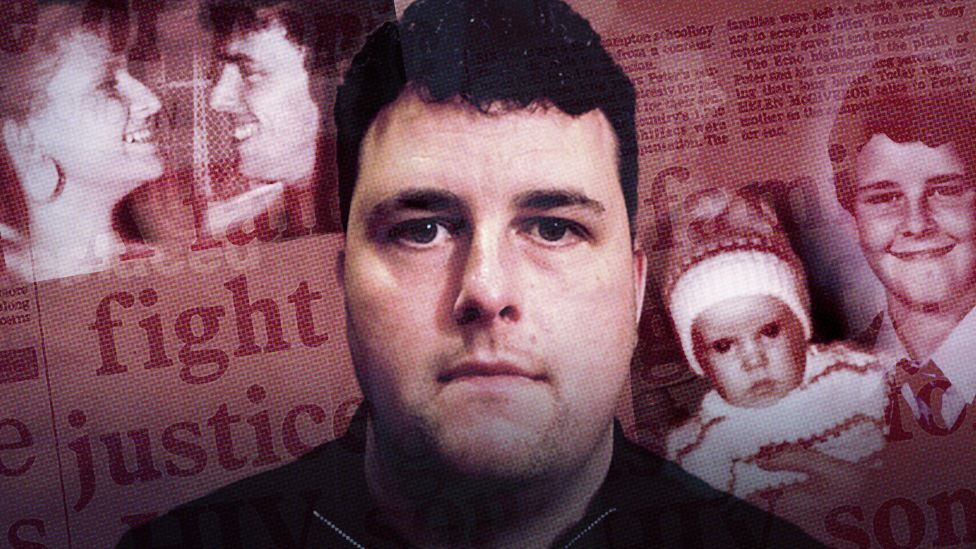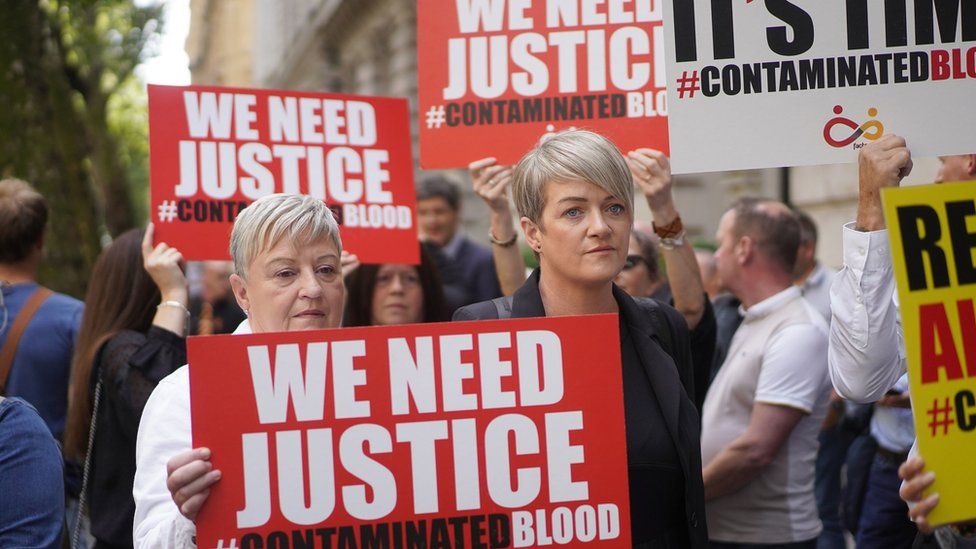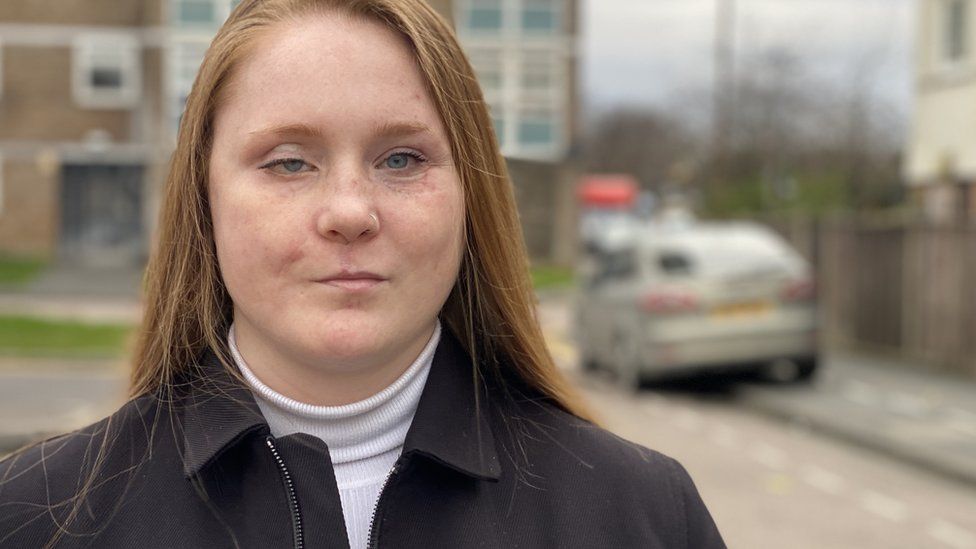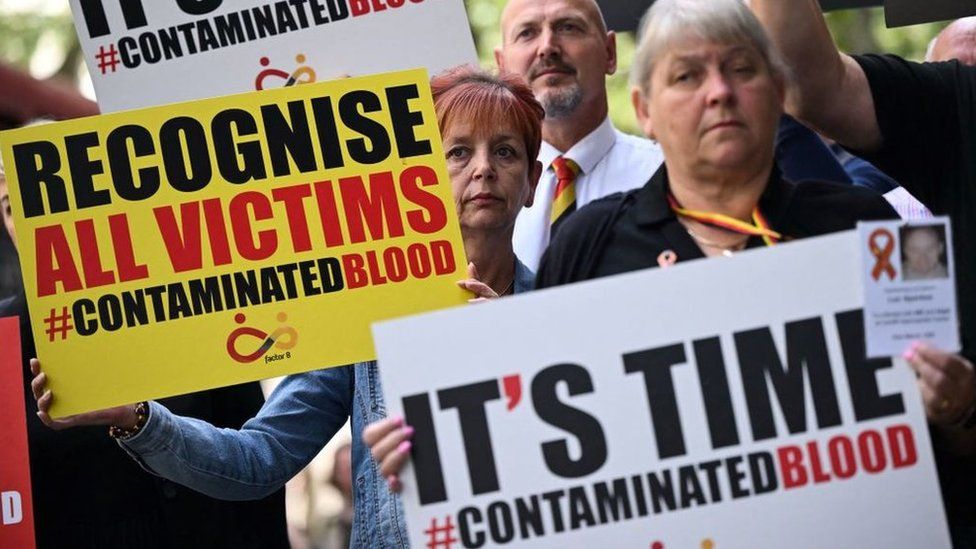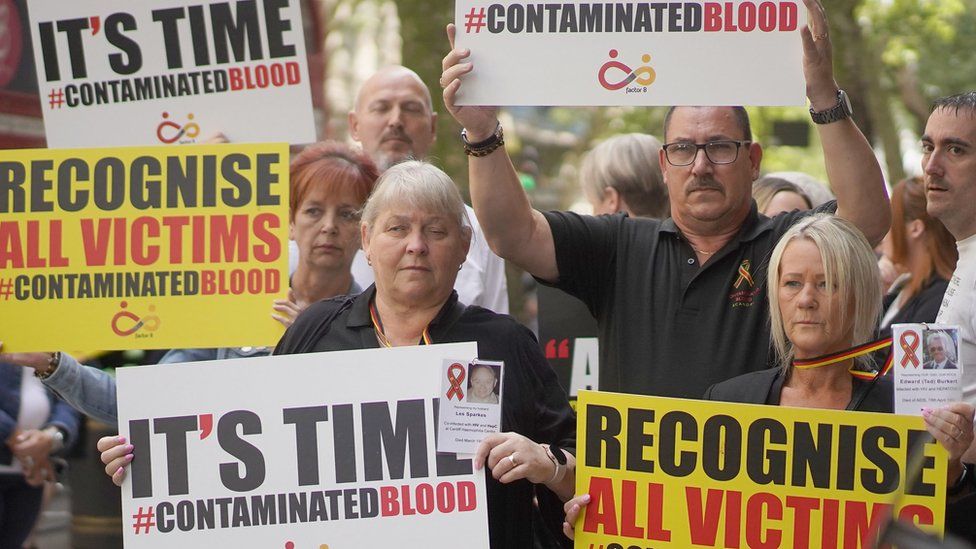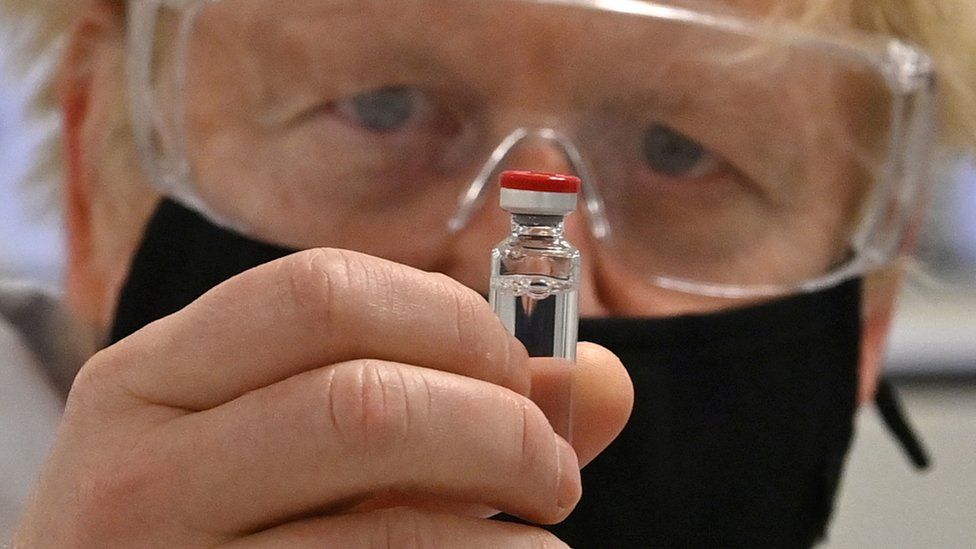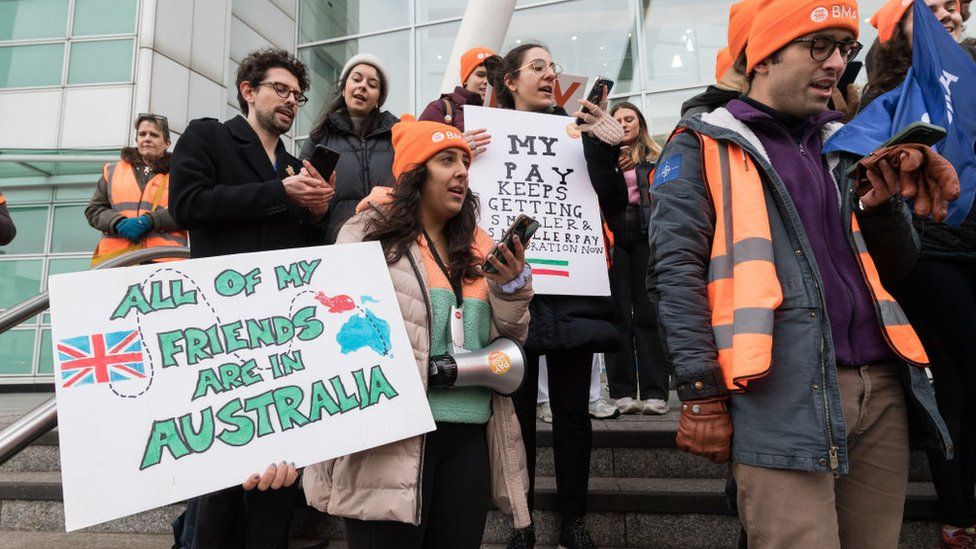I lost my mum, dad and baby sister to HIV in infected blood scandal
Published6 minutes agoShareclose panelShare pageCopy linkAbout sharingBy Jim ReedBBC PanoramaAll Sam Rushby can remember about his family are fleeting memories of hospital corridors and waiting rooms.In 1994, at just two years old, he lost his mum to Aids. His dad died with the condition a year later at Liverpool Royal Infirmary.His sister had also been infected with HIV, then a new and untreatable virus, and had died.”My family was literally torn apart and ripped away from me,” he tells BBC Panorama in his first-ever interview.”It just feels like they’ve been disposed of and that’s the end of it now.”Image source, Family photoSam’s father Gary was one of more than 1,200 people infected with HIV as part of the infected blood scandal, most after being given a drug made from US blood plasma in the late 1970s and 1980s.A long-running public inquiry into what has been called the worst treatment disaster in NHS history is preparing to report its findings.One of the key areas it is examining is whether the authorities were too slow to act at the time.Now, BBC Panorama has seen evidence that the British Embassy in Washington warned the UK government about the risk of Aids from contaminated blood in the early 1980s.An embassy official wrote a five-page memo to a senior figure at the Department of Health after meeting a member of the US Aids taskforce. The warning – one of several – came a decade before Sam was born. Infected Blood: Time for AnswersJim Reed meets the families of some of the children with bleeding disorders who were infected with HIV, to discuss their campaign for justice and what they hope for from the inquiry.Watch on BBC One at 20:00 BST on 13 May or on BBC iPlayer (UK Only) It wasn’t until he was in his teens that Sam, now 32, started to learn the truth.His father Gary was born with haemophilia, a genetic condition that damages the blood’s ability to clot. It almost always affects men, although women carry the haemophilia gene and can pass it on.In the late 1970s, Gary started on a new treatment meant to radically improve his life.Factor VIII was marketed as a wonder drug. Patients could simply take a bottle of the white powder from the fridge, mix it with distilled water and inject themselves.The bleeding would stop and, for the first time ever, haemophiliacs could live a more normal life.But those patients would later learn that entire batches of the new treatment had been contaminated with HIV and hepatitis C.About two-thirds of those infected with HIV in the 1980s developed Aids and died before modern antiretroviral drugs became available.Sam struggled to comprehend the truth about what happened to his family when he was finally told by his grandparents.”I didn’t believe it, I couldn’t believe it,” he says. “I just can’t get over, why did it have to happen?”In the early 1980s, the UK could not keep up with demand for Factor VIII, which was made by pooling – or mixing – the blood plasma of thousands of individual donors.Instead the treatment was shipped from the US.In the UK, blood donations have always been voluntary, but in the US, drug companies were allowed to pay cash for plasma.High risk groups, from prisoners to drug users, had a clear financial incentive to give blood and potentially lie about their medical history.Evidence uncovered by campaigners and seen by the ongoing public inquiry into the wider contaminated blood scandal shows that, as the risk from Aids started to become known, a series of clear warnings were sent to the UK government.In May 1983, Dr Spence Galbraith, the director of the UK’s Communicable Disease Surveillance Centre, wrote to Dr Ian Field, the senior principal medical officer at the Department of Health, urging that all US blood products should be withdrawn from use until the risk of Aids was “clarified”.The letter from the British embassy in Washington – which Panorama has now seen – was also sent to Dr Field, just a month later on 28 June 1983.In it, an embassy official describes a meeting with a representative from the US Centers for Disease Control’s Aids taskforce.The transmission of HIV in blood was discussed, he writes. Haemophiliacs were “most at risk” from the “dubious habits” of some paid American blood donors, and the mixing of thousands of those donations to make Factor VIII.The Tainted Blood group, which represents hundreds of survivors and their families, says the letter shows a “staggering level of awareness and detail” about the dangers.But this – and other – warnings were not acted on. NHS patients continued to be given untreated Factor VIII imported from the US until at least 1985.Many of those involved in decisions in the 1980s are no longer alive, including Dr Ian Field.In 1983, knowledge of HIV and Aids was still emerging.At the time, a Department of Health official described the call to withdraw American Factor VIII as premature and said it did not take into account the risks to haemophiliacs of removing a major source of their treatment.Image source, Family photoSam says his dad didn’t know he had been infected with HIV for many years.Gary unwittingly passed the virus on to his wife Lesley. She later gave birth to a daughter, Abbey, who was born HIV+ and died at just four months old.Lesley did become pregnant again and in 1992 Sam arrived, this time testing negative for HIV.But just two years later, Lesley died of an Aids-related illness, followed just a year later by her husband.”The sad thing is, I have literally no memories of them, just a handful of pictures,” says Sam. “It’s that constant gutting feeling of sadness, of wondering what growing up would have been like.”Sam was brought up by his grandparents, who initially told him his mum and dad had died of cancer and a stroke.He only started to learn what really happened in his early teens, although the stigma surrounding Aids meant he kept the details secret as, he says, “teenagers could be mean”.”I’ve always suffered with anxiety and depression. If you lose your mum and dad at such a young age, it’s going to make you anxious,” he says.”But then, in later life, I found out why and that just compounded the agony.”What is the infected blood scandal and will victims get compensation?Hundreds infected with hepatitis C without knowing it, BBC findsChildren were used as ‘guinea pigs’ in clinical trialsSam is one of hundreds of children to have lost parents to the scandal. To date, none have received government compensation.In total, more than 30,000 NHS patients were infected with HIV and hepatitis C between 1970 and 1991 through contaminated blood products such as Factor VIII and IX – or blood transfusions after surgery, treatment or childbirth.In other countries – from France to Japan – investigations into the medical disaster were completed many years ago. In some cases, criminal charges were brought against doctors, politicians and other officials.In the UK, campaigners say the scandal has never had the same level of attention.A private inquiry in 2009, funded entirely by donations, lacked any real powers, while a separate Scottish investigation in 2015 was branded a “whitewash” by victims and their families.In 2017, following political pressure, then-Prime Minister Theresa May ordered a UK-wide public inquiry.Led by the former high court judge, Sir Brian Langstaff, it had the power to compel witnesses to give evidence under oath and order the release of documents.After a series of delays, his final report is now due on 20 May.Image source, Family photoResearch for the inquiry has found that 380 of the 1,250 patients with bleeding disorders infected with HIV were children at the time.Many families also had to deal with the stigma of what was then an untreatable disease.Sarah-Jane’s younger brother Colt was infected with HIV and died, aged 10, in 1992. She says the family, from Plymouth, had to move house three times to try to escape abuse from people in the local area.”We were shunned, we were talked about. Colt didn’t have any friends because nobody wanted to play with him,” she says.”Friends and neighbours became distant, afraid and accusing.”In September 1985, a primary school in Hampshire made national news headlines when the parents of a young haemophiliac told teachers he had tested HIV+.Other families pulled their children out of class, and didn’t allow them back until Aids specialists had been sent in to properly explain the risks.Image source, Family photoThe boy at the centre of the media storm was aged just nine and was anonymous at the time. But he can now be named as 48-year-old Peter Adlam.”I just remember, I didn’t want to get caught by the cameras outside the school gates,” he tells BBC Panorama in his first-ever interview. “I’d try to blend in with the other kids as much as I could. As a child you should think you’re indestructible and going to live forever and I was becoming very aware that I wouldn’t.”Peter went on to develop serious health problems linked to HIV including three episodes of pneumonia in 1996. At one point, his parents were told he may only have weeks to live.New HIV drugs arrived in time to save his life, although he has still had to deal with multiple health problems to this day.”Up until that point, I hadn’t thought I’d see the year 2000. So it was very bleak and there wasn’t a lot of hope,” he says.”I saw other people my age living their lives and I wasn’t able to. I haven’t had a career, I haven’t travelled. I can’t imagine what my life would be like if I hadn’t been infected.”In August 2022, the government agreed to make the first-ever interim compensation payments of £100,000 to about 4,000 survivors of the scandal or their bereaved partners.Ministers have indicated they are planning to extend that to the parents and children of those infected, including Sam Rushby, and to also set up a final compensation scheme.But no firm timetable has yet been put in place to make the payments, with the total cost likely to run to billions of pounds.The government told Panorama in a statement: “This was an appalling tragedy that never should have happened. We are clear that justice needs to be done, and swiftly. “This includes establishing a new body to deliver an Infected Blood Compensation Scheme, it will have all the funding needed to deliver compensation once they have identified the victims and assessed claims.”We will continue to listen carefully to the community as we address this dreadful scandal.”You can follow Jim on X.More on this storyWhat is the infected blood scandal and how many people died?Published1 MayChildren used as ‘guinea pigs’ in clinical trialsPublished18 AprilHundreds infected with hepatitis C without knowing it, BBC findsPublished3 days ago
Read more →
